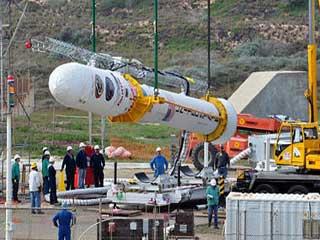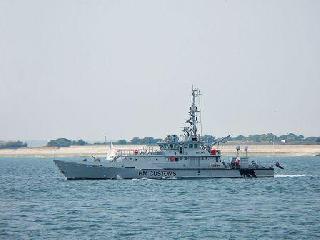
Earth observation satellite Glory at Vandenberg Air Force Base in California. Photo: NASA
WASHINGTON (AFP): The earth observation satellite Glory on Friday failed to reach orbit after its protective cover did not detach following its launch, a NASA official said.
"The fairing did not separate and the vehicle does not have sufficient velocity with the fairing on to achieve orbit," an official said on NASA TV, adding that there was "no indication as to why it did not separate."
He said there would be a press briefing at around 7:30 am (1230 GMT).
The launch of the satellite -- which was to measure aerosols in the Earth's atmosphere to help clarify their impact on climate -- was delayed on February 23 after an unexpected ground control reading 15 minutes before liftoff.
Today it rocketed away from Vandenberg Air Force Base in California aboard a four stage Taurus-XL rocket at 2:09 am (1009 GMT), but NASA soon reported that it was slowing down and would not reach orbit.
A similar mishap took place in February 2009, when a satellite designed to monitor global carbon dioxide emissions plummeted into the ocean near Antarctica after failing to reach orbit, in a setback for climate science.
There too, a fatal mission error occurred minutes after liftoff when a clamshell-like nose cone known as a fairing, which protects the satellite during its ascent, failed to separate properly.
Glory was carrying instruments that were to measure aerosols and study how the Sun interacts with the atmosphere.
"Both aerosols and solar energy influence the planet's energy budget -- the amount of energy entering and exiting Earth's atmosphere," NASA said ahead of the launch.
"An accurate measurement of these impacts is important in order to anticipate future changes to our climate and how they may affect human life."
 Previous Article
Previous Article Next Article
Next Article












The Indian Air Force, in its flight trials evaluation report submitted before the Defence Ministry l..
view articleAn insight into the Medium Multi-Role Combat Aircraft competition...
view articleSky enthusiasts can now spot the International Space Station (ISS) commanded by Indian-American astr..
view article